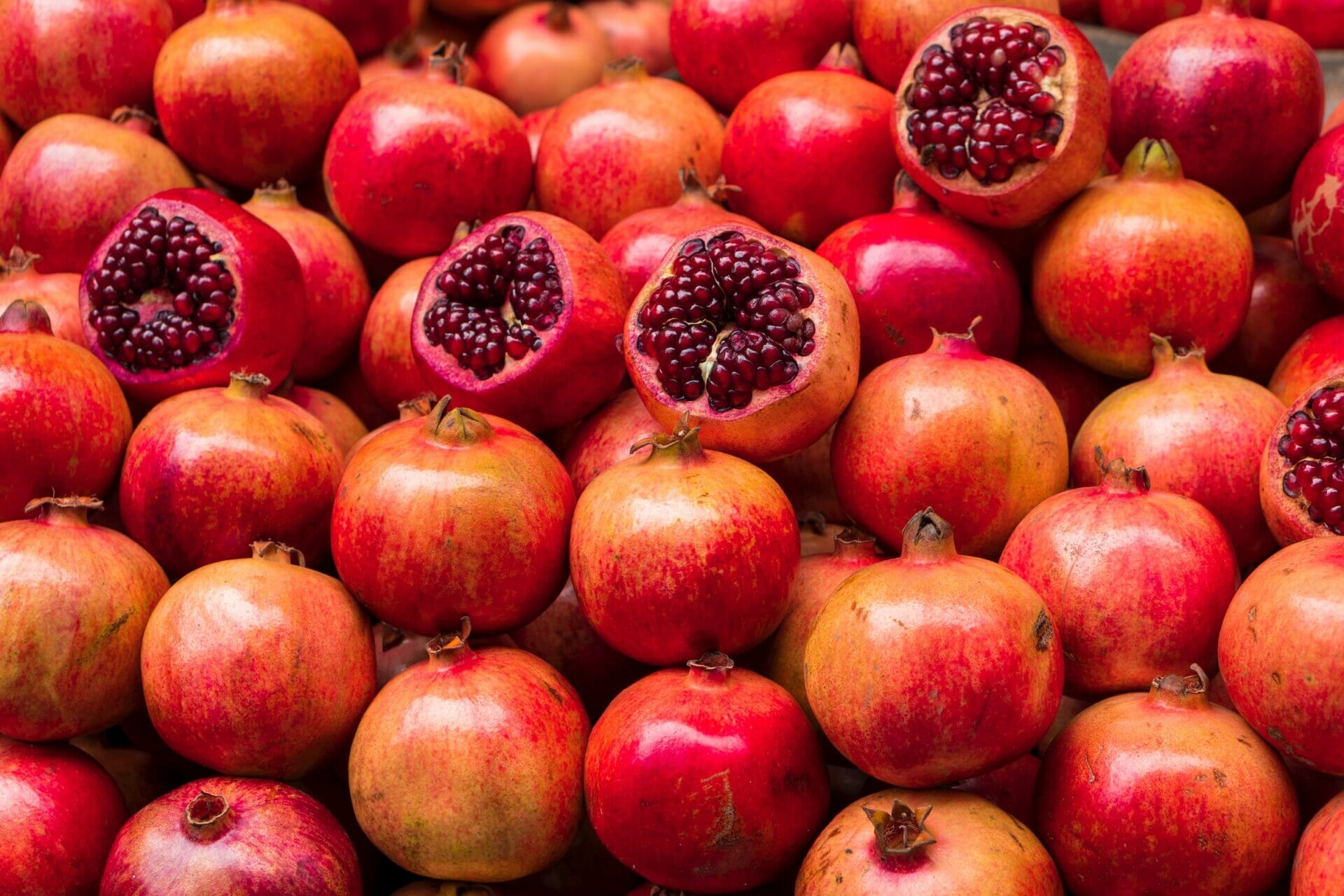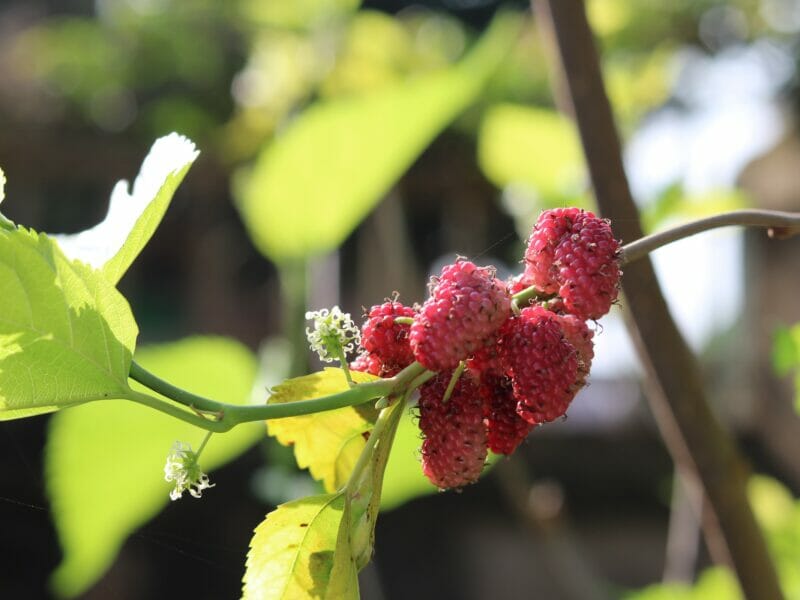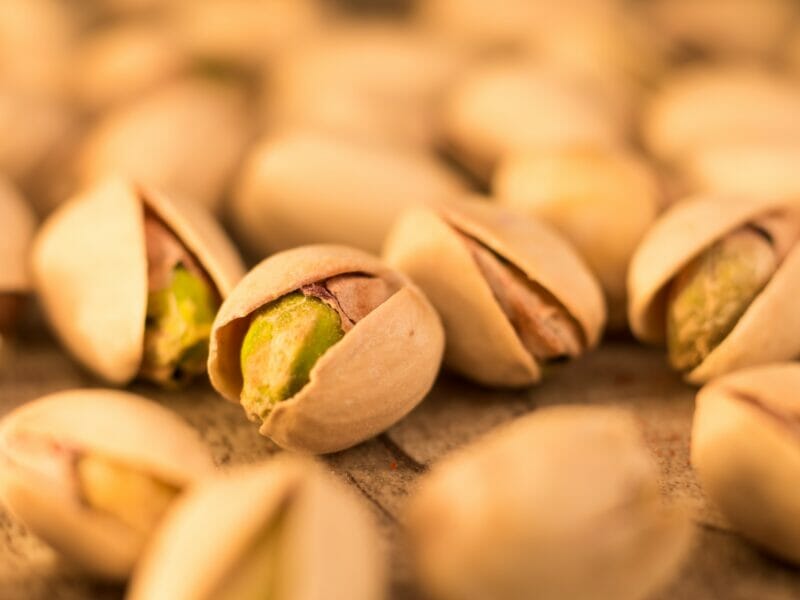In recent years, there has been growing interest in the potential health benefits of resveratrol, a powerful antioxidant found naturally in certain plants. As researchers delve deeper into its properties, it is becoming increasingly apparent that this compound may hold immense therapeutic potential for various diseases and conditions. However, while many people are familiar with resveratrol’s presence in red wine, there are numerous other natural sources of this beneficial substance that deserve our attention. In this article, we will explore some lesser-known but equally important sources of resveratrol and shed light on how they can contribute to improving our overall well-being.
Resveratrol in Grapes and Red Wine
Resveratrol, a potent antioxidant known for its potential health benefits, is present in grapes and red wine. Researchers are uncovering the therapeutic potential of this compound for various diseases and conditions. Although resveratrol’s association with red wine is well-known, there are other natural sources that also contain this beneficial substance.
 Grapes are one of the primary sources of resveratrol. The skin of grapes contains higher concentrations than the pulp or juice, making red and purple grape varieties particularly rich in this antioxidant. Red wine, derived from fermented grapes, has been extensively studied for its potential health effects due to its high resveratrol content.
Grapes are one of the primary sources of resveratrol. The skin of grapes contains higher concentrations than the pulp or juice, making red and purple grape varieties particularly rich in this antioxidant. Red wine, derived from fermented grapes, has been extensively studied for its potential health effects due to its high resveratrol content.
In addition to grapes and red wine, berries such as blueberries and cranberries also contain notable levels of resveratrol. These fruits offer an alternative source for individuals who prefer not to consume alcohol or find it unsuitable due to health concerns. Exploring these lesser-known yet equally important sources broadens our options when considering incorporating resveratrol into our diet for possible health benefits.
Resveratrol in Berries and Cherries
Resveratrol, a potent antioxidant, is not only found in red wine but can also be obtained from berries and cherries. Berries, such as blueberries, strawberries, and raspberries, are rich sources of resveratrol. These fruits not only provide a burst of flavor but also offer numerous health benefits. Cherries, both sweet and tart varieties, are another excellent natural source of resveratrol. Packed with antioxidants and anti-inflammatory properties, cherries have been linked to various health benefits including reducing inflammation, improving sleep quality, and aiding in exercise recovery. So instead of relying solely on red wine for your dose of resveratrol, incorporating berries and cherries into your diet can provide you with this beneficial compound along with other essential nutrients.
In recent years, researchers have focused their attention on the therapeutic potential of resveratrol found in berries and cherries. Studies indicate that this powerful antioxidant may help protect against heart disease by reducing oxidative stress and inflammation as well as increasing levels of good cholesterol (HDL). Additionally, resveratrol has shown promise in preventing age-related cognitive decline by protecting brain cells from damage caused by free radicals. The anti-inflammatory properties present in these fruits may also offer protection against various chronic diseases like cancer and diabetes.
In conclusion, while many people associate resveratrol primarily with red wine consumption for its health benefits; it is important to recognize the presence of this valuable compound in berries such as blueberries or strawberries as well as cherries. Their high content of antioxidants combined with their potential positive impact on heart health and cognitive function make them an excellent addition to a healthy diet for those seeking the numerous advantages associated with resveratrol intake.
Resveratrol in Dark Chocolate
Resveratrol, a potent antioxidant, is gaining significant attention due to its potential health benefits. While commonly associated with red wine, it can also be found in dark chocolate among other natural sources. Researchers are finding that resveratrol may have therapeutic properties for various diseases and conditions.
Dark chocolate contains a notable amount of resveratrol, making it an appealing alternative source of this beneficial substance. Studies suggest that resveratrol from dark chocolate can potentially improve heart health by reducing inflammation and lowering blood pressure. Furthermore, this antioxidant has been linked to increased brain function and improved memory in animal studies.
Overall, while red wine is often synonymous with resveratrol consumption, dark chocolate serves as another important natural source of this powerful antioxidant. Its potential positive effects on heart health and cognitive function make it an intriguing area for further research and exploration into the multiple benefits of resveratrol beyond just red wine consumption.
Resveratrol in Peanuts and Pistachios
Resveratrol, a potent antioxidant with potential health benefits, is found in various natural sources including peanuts and pistachios.
These commonly consumed nuts contain significant levels of resveratrol, making them an excellent dietary source for obtaining this beneficial compound.
Peanuts have been found to be particularly rich in resveratrol.
With studies showing that they contain even higher amounts of the antioxidant compared to red wine. This makes peanuts an excellent option for individuals seeking to increase their intake of resveratrol without consuming alcohol.
Similarly, pistachios also contain notable levels of resveratrol, making them a healthy choice for those looking to incorporate this compound into their diet. Including peanuts and pistachios as part of a balanced diet can provide individuals with the potential health benefits associated with resveratrol. From its antioxidant properties to its possible role in disease prevention and management, incorporating these nutty snacks into one’s eating habits may lead to improved overall well-being.
Resveratrol in Japanese Knotweed
Resveratrol, a potent antioxidant gaining significant attention for its potential health benefits, is naturally found in Japanese Knotweed. This plant contains high concentrations of resveratrol, making it an important source of this compound. As researchers continue to study the properties of resveratrol, they are discovering its immense therapeutic potential for various diseases and conditions.
While red wine is commonly known as a source of resveratrol, it is essential to highlight other natural sources that contain this beneficial substance. Japanese Knotweed deserves attention because of its impressive levels of resveratrol. By exploring these lesser-known sources, we can broaden our knowledge and potentially uncover new ways to harness the healing capabilities of this powerful antioxidant.
In conclusion, the presence of resveratrol in Japanese Knotweed offers an alternative natural source for obtaining this powerful antioxidant. With ongoing research pointing towards intriguing therapeutic potentials associated with resveratrol intake, identifying additional sources like Japanese Knotweed beyond red wine becomes crucial for expanding our understanding and applications in healthcare and wellness practices.
Resveratrol in Pomegranates
Resveratrol, a potent antioxidant, has garnered significant attention in recent years due to its potential health benefits. While commonly associated with red wine, pomegranates also serve as a reliable natural source of this remarkable compound. Pomegranates, known for their vibrant color and unique taste, contain high levels of resveratrol that contribute to their numerous health-promoting properties.
Studies have shown that resveratrol in pomegranates may help combat inflammation and oxidative stress, which are implicated in the development of various chronic diseases such as heart disease and cancer. Additionally, this powerful polyphenol has been found to support cardiovascular health by reducing blood pressure and improving blood flow. The presence of resveratrol in pomegranates highlights their potential role in enhancing overall well-being and advancing preventative healthcare strategies.
In conclusion, while red wine remains popular as a source of resveratrol, it is crucial to recognize other natural sources rich in this beneficial antioxidant – particularly pomegranates. Incorporating pomegranate consumption into our diets can offer a multitude of potential health advantages attributed to the presence of resveratrol. As we continue to explore the therapeutic applications of resveratrol, these lesser-known sources provide an exciting avenue for further research and utilization in promoting optimum health.

Resveratrol in Mulberries and Mulberry Extracts
Mulberries are one such natural source of resveratrol that has gained attention for its potential health benefits. These small fruits, native to Asia, have been found to contain significant amounts of resveratrol, making them a valuable addition to any diet. Studies have shown that mulberries and mulberry extracts may possess anti-inflammatory and antioxidant properties, which can help protect against oxidative stress and reduce the risk of chronic diseases such as heart disease, cancer, and neurodegenerative disorders.
One particular study conducted on mulberry fruit extract found that it exhibited strong antiviral activity against herpes simplex virus type 1 (HSV-1). Another study suggested that mulberry extract could provide protection against skin aging by suppressing the production of reactive oxygen species (ROS), which are known to damage cells and contribute to premature aging. Furthermore, research indicates that the combination of resveratrol with other bioactive compounds present in mulberries enhances its beneficial effects.
In conclusion, while red wine often takes center stage when discussing sources of resveratrol, we should not overlook other natural sources like Mulberries. Aside from their delicious taste, these berries offer a rich supply of this powerful antioxidant compound. Incorporating mulberries or their extracts into our diet may provide us with an effective way to harness the numerous health benefits associated with Resveratrol’s therapeutic potential in combating various diseases and conditions.

FAQs
Q: What are some natural sources of Resveratrol?
A: Resveratrol is found in a variety of plant foods. Some of these include blueberries, red grapes, and peanuts. Peanut butter is also a good source of resveratrol.
Other foods high in this compound include cocoa and pistachios. A research conducted by Oregon State University’s Linus Pauling Institute also found the presence of resveratrol in red wine.
Q: How much Resveratrol is generally found in blueberries?
A: The total Resveratrol content of blueberries can vary, but they usually contain about 0.24 to 0.34 milligrams of resveratrol per cup. The amount can vary depending on the type of blueberry and its maturity.
Q: What are the known health benefits of Resveratrol?
A: Resveratrol has been associated with a range of health benefits. It has been found to inhibit the growth of cancer cells, and may also help prevent type 2 diabetes. The mechanisms of resveratrol involve antioxidative, anti-inflammatory, and sirtuin-activating properties. Additionally, high doses of resveratrol have shown to possess cardiovascular protective effect.
Q: How does trans-resveratrol differ from other types of Resveratrol?
A: Trans-resveratrol is the active form of resveratrol. It is the same substance found in plant foods, but has been chemically resolved into its active state. This form is more easily absorbed by the body, and so it is often used in resveratrol supplements.
Q: Does drinking red wine provide enough Resveratrol?
A: While it’s true that resveratrol is found in red wine, you would need to drink several bottles a day to get the amount of resveratrol found beneficial in recent study. The Oregon State University’s Linus Pauling Institute indicates that typical red wine provides roughly 0.2 to 5.8 mg of resveratrol per liter.
Q: Are there any potential side effects of taking high amounts of Resveratrol?
A: High doses of resveratrol, especially in supplement form, could cause side effects like nausea, vomiting, diarrhea, and liver dysfunction in people with liver disease. Also, it can interact with blood thinners like warfarin, and affect their efficacy. It’s recommended to consult your doctor before starting any new supplement regimen.
Q: Does Resveratrol have anti-aging properties?
A: Some studies suggest that resveratrol promotes longevity and healthspan. The compound helps to inhibit free radicals, which are associated with the aging process. However, more research is needed to confirm these effects in humans.
Q: Can Resveratrol help protect against heart disease?
A: Several studies have shown that resveratrol could have heart health benefits. Research has found that it can prevent damage to blood vessels, reduce LDL cholesterol, and inhibit the formation of blood clots. These effects could potentially help to protect against heart disease.
Q: Are Resveratrol supplements as effective as consuming it through diet?
A: While resveratrol supplements do make the compound more readily available to the body, it may not provide the same overall health benefits as consuming it through foods high in resveratrol. This is because plant foods also contain an array of other beneficial compounds that interact with resveratrol. The data suggest that resveratrol supplementation may provide benefits, but it’s still important to eat a balanced diet.
Q: What role does Resveratrol play in preventing cancer?
A: Preliminary studies indicate that resveratrol could potentially help prevent cancer by acting as an antioxidant, protecting the body’s cells from damage. Research revealed that resveratrol was found to act on numerous cellular targets to prevent cancer or make chemotherapy more effective.
Q: Where in plant foods is resveratrol found?
A: Resveratrol is found in several types of plant foods. These include the skin of red grapes, blueberries, raspberries, mulberries, and peanuts. Also, it’s worth mentioning the presence of resveratrol in red wine, thanks to its red grape content.
Q: What are the health benefits of trans-resveratrol?
A: The health benefits of trans-resveratrol, the most active form of resveratrol, are numerous. Its activity of resveratrol has been reported to inhibit the growth of many types of cancer cells and has shown to possess protective effects against cardiovascular disease. There is also some evidence suggesting that resveratrol could help prevent type 2 diabetes and slow down the aging process.
Q: How much resveratrol per cup can I get from blueberries?
A: Blueberries are good sources of resveratrol, containing about 0.5 to 1 milligrams of resveratrol per cup. However, the total resveratrol content can vary depending on the type and freshness of the berries.
Q: What is the effect of resveratrol supplements?
A: Resveratrol supplements have been studied for their potential health benefits. Some data suggest that resveratrol supplementation could have a positive impact on heart health, cancer prevention, and lifespan. However, further research is required to better understand the effect and mechanisms of resveratrol in high doses.
Q: How does resveratrol inhibit diseases?
A: There is evidence to indicate that resveratrol may play a crucial role in disease prevention and treatment by modulating several biological pathways. For instance, resveratrol was found to act as an antioxidant, an anti-inflammatory agent, a modulator of mitochondrial function, and a caloric restriction mimetic.
Q: How much resveratrol in red wine can one consume per serving?
A: The resveratrol in red wine varies according to the type of grapes used and their growing conditions. On average, a 5-ounce glass of red wine provides between 0.5 and 1 mg of resveratrol. But consuming large quantities of red wine to obtain more resveratrol isn’t recommended due to the negative health effects of excessive alcohol.
Q: How much resveratrol do peanuts and peanut butter contain?
A: Peanuts and peanut butter are actually some of the best food sources of resveratrol. For example, raw peanuts can offer around 0.01 – 0.26 mg per gram and peanut butter contains about 0.04 – 0.13 mg per gram of resveratrol.
Q: How does resveratrol promote health?
A: Resveratrol promotes health through several mechanisms. It has potent antioxidant properties, which help protect cells from damage. It also has anti-inflammatory effects, which can fight chronic inflammation and may help reduce the risk of various diseases like heart disease and cancer. Resveratrol also has potential anti-aging effects.
Q: What are some foods high in resveratrol?
A: While red grapes and red wine are often associated with resveratrol content, other good sources include blueberries, strawberries, cocoa, dark chocolate, and peanuts. However, the amount of resveratrol in these foods varies greatly, and eating them won’t provide the large amounts that have shown benefit in research studies.
Q: What is the role of resveratrol according to the Linus Pauling Institute at Oregon State University?
A: The Linus Pauling Institute at Oregon State University reports that resveratrol, particularly in supplement form, has the potential ability to act as an antioxidant, an anti-inflammatory, a sirtuin activator, and a phytoestrogen. The Institute also suggests that resveratrol may help reduce the risk of a number of chronic illnesses.




 Introduction to Resveratrol
Introduction to Resveratrol
